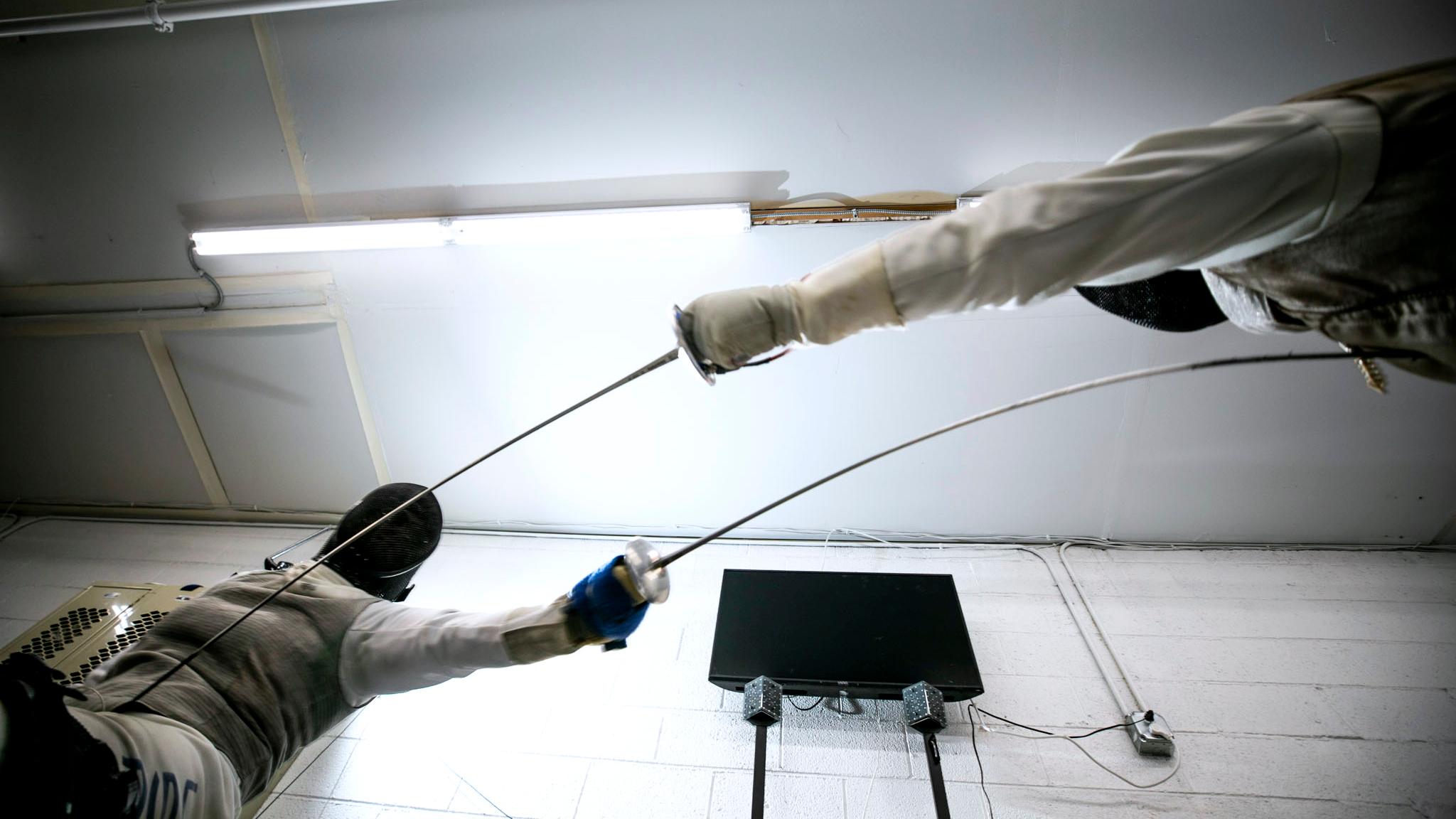In 2020, Denver Fencing Center founder Nathan Anderson had a breakthrough.
He'd won a $20,000 grant to turn his gym, right across the street from Ruby Hill Park, into a national hub for wheelchair swordplay.
It was enough to buy all the gear he needed to train athletes worthy of elite competition. All that was left was to find someone who'd go the distance.
When he spoke to us about it back then, he said he dreamt of taking someone to the 2024 Paralympics in Paris. But he wasn't sure that was in the cards. Four years wasn't long to whip his new program into that kind of shape.
As Anderson tried to convince some rising athletes to move here and help him secure a medal, he also ramped up local outreach, inviting groups of people recovering from limb loss and from hospitals to come see what the sport was like.
That's how Jataya Taylor — usually just "J" — ended up in his gym. She'd never seen adaptive fencing when she visited with a group from the local Veterans Affairs hospital in February of 2022. Something about it clicked immediately.
"I had no clue and they brought me here and I fell in love," she remembered.
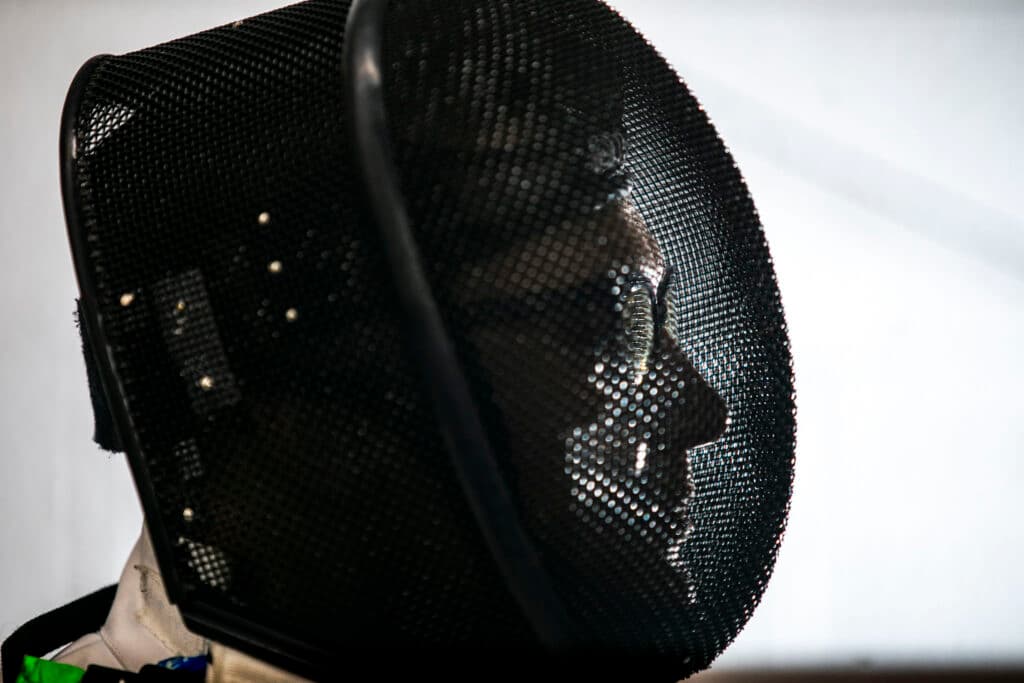
She started training in August of that year, then competing.
Less than two years later, she got some astounding news: She would represent her country in Paris. USA Fencing publicly announced her qualification last week.
For Anderson, it was a sign that his gym was on its way to achieving his larger mission. For Taylor, it was confirmation that the home she found there was exactly where she belonged.
Taylor had no reason to think she'd become an elite athlete for a long time.
She has roots in Rapid City, but spent most of her life in Florida. As a kid, she was athletic and made waves on her high school basketball team.
But her sights were set elsewhere. When she finished school, she joined the Marines.
"In the long run, I honestly didn't see myself here," she said before a recent practice. "Maybe excelling in the military and climbing the ranks."
Things didn't go the way Taylor expected. Early on, before she was ever deployed, she was seriously injured in a training accident. Her left leg would never fully heal, and her life would change forever.
"For years I was just plain upset. My career was supposed to be the military. That was supposed to be my life, and all of a sudden it was gone," she told us. "No one ever tells us that when you get hurt, there's a chance you're not going to get better."
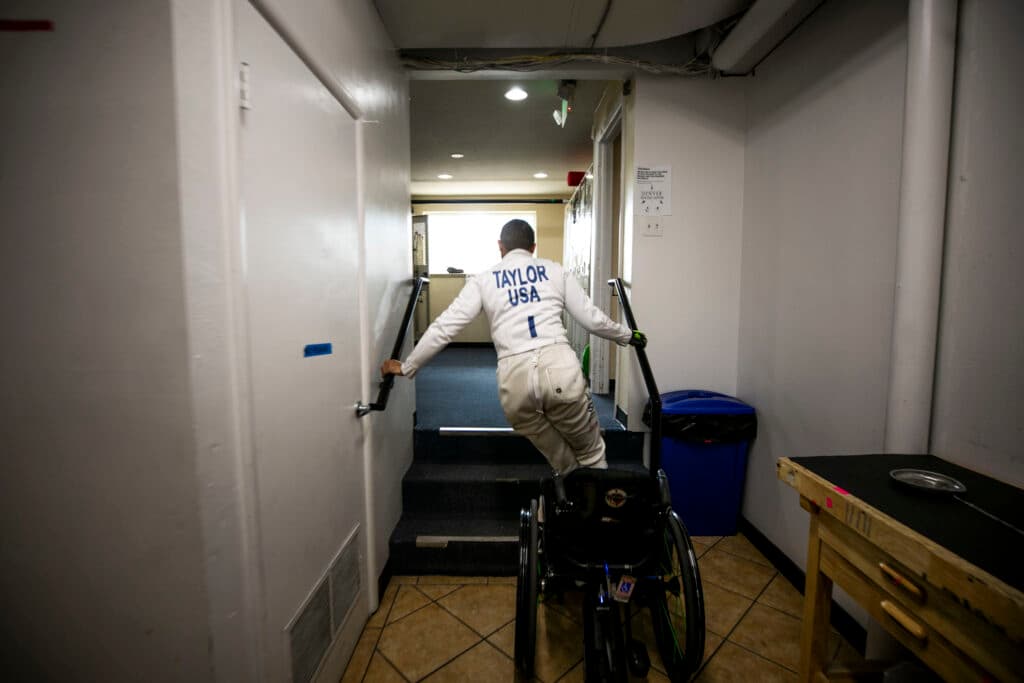
She could still walk on her leg, but it was hard, and it could hurt. She said she spent 12 years "fighting" her body before she asked doctors to do something rash.
"I told them to cut off my leg or I would," she said. "They looked at me like I'm crazy."
"By the time it came to the amputation, I looked at it as it was like a cancer and it was causing so many problems with the rest of my body, metastasizing, that it just needed to be gone," she added. "And once it was gone, then I could walk. I could do other things. And my mental health improved, a lot."
Freeing herself from that chronic physical pain helped her move past the loss she felt about her derailed life. Fencing became a symbol of what she could achieve if she embraced that change.
"That is one of the biggest things that has changed in my life. I can't remember who wrote the quote, but it goes something like: We spend so much time looking at the door that's shut in front of us, we don't see all the doors that opened around us," she said. "When something happens, it's not the end of the world. Don't give up."
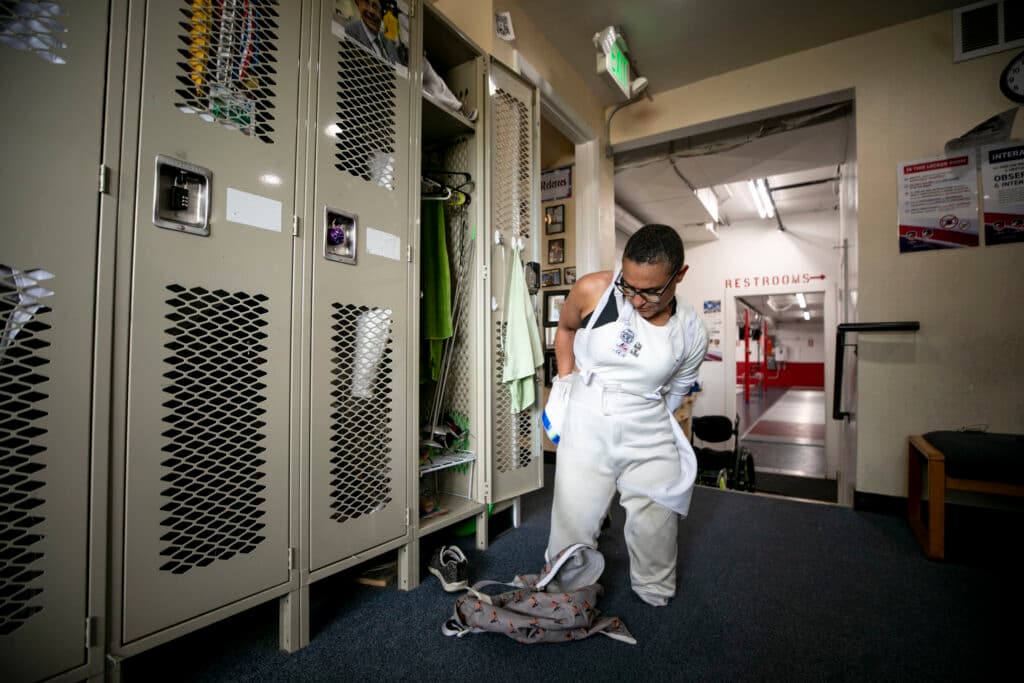
She fell in love with the sport, but it was the people that kept her going.
While traditional fencers rely on their feet to dodge their opponents and lunge for points, adaptive fencing takes place between people strapped into immobile wheelchairs.
It's worth noting that not everyone who fences in adaptive competitions has a disability related to walking. Some might have cognitive conditions.
The chair helps level things between everyone. The rigs can tilt if athletes rock them hard enough, but there's little room for error once the ref declares, "En garde!" It's a sport about anticipation and precision, and that's the part Taylor fell for.
"I am strong and fast, but after a while, I realized that's not the only component that you have to have," she told us. "That is probably what really brought me in. At first it was really zen ... in basketball, if you foul me, I'm going to be mad and play harder and put it in your face. Here I have to play smarter, not harder."
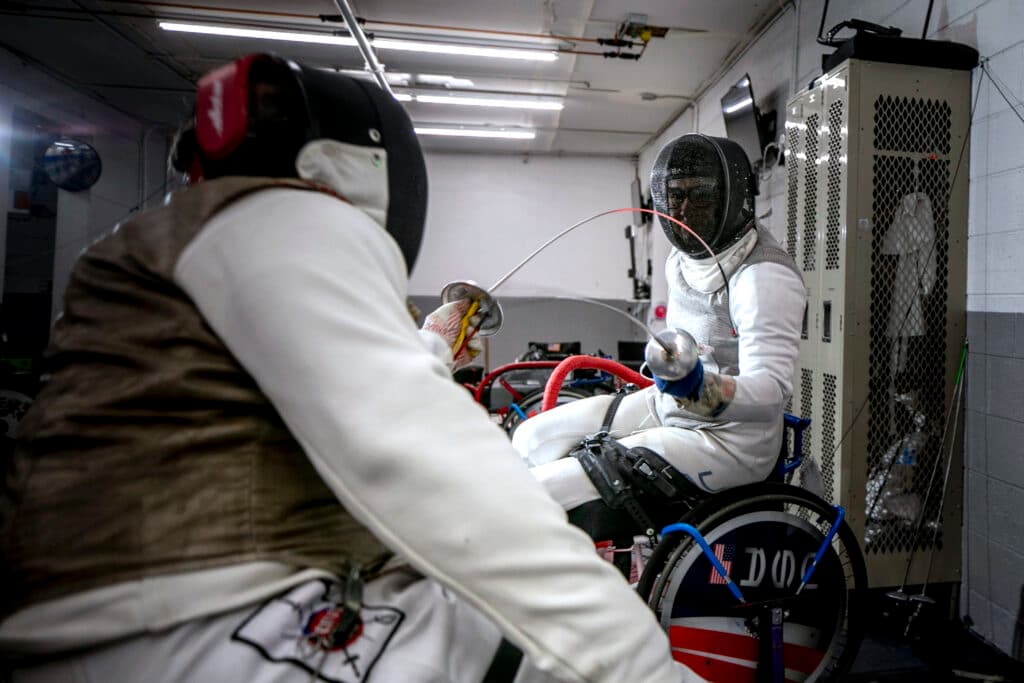
But once she entered this world, it was the people that made her stay. As she began to travel and compete, she found she suddenly had friends everywhere.
"That was the biggest thing for me, because it's such a loving and open community. We are a family, we're just spread all over the map," she said. "We might be in our one-minute break, sitting in there laughing, and then ding, ding, ding! Time starts. Bam, bam, bam, bam, bam! I'm going to get you, I'm going to stab you! Then we're done. High five. Bow."
"It's a way to get exercise, still use your mind and make friends that you get to stab."
She has to pay for her own travel to get to a lot of those competitions, so she was grateful when Anderson offered her a job at the gym. These days, she says the warehouse on Navajo Street has become "the center of my universe."
Anderson said he's proud of how far she's come, and not just because she's grown as an athlete in such a short period.
He also had something to prove to USA Fencing and the United States Olympic & Paralympic Committee, who furnished that money four years ago.
"It's one of those great success stories, when somebody gives you a grant and you're hoping that it's going to turn into something great. In this case, when you have an athlete that goes from zero to the Paralympics in two years, I mean, that's incredible. So we're really excited," he said. "I mean, the US Olympic committee's probably not going to be happy until we bring back medals for them."
China and Italy are the teams to beat, he said. Though adaptive sports have grown in the U.S. in recent years, they're still vastly underfunded compared to those countries.
"They've got a million-dollar budget. And we're kind of like the rebellion in "Star Wars," where we're trying to piece everything together and hopefully it works," Anderson joked.
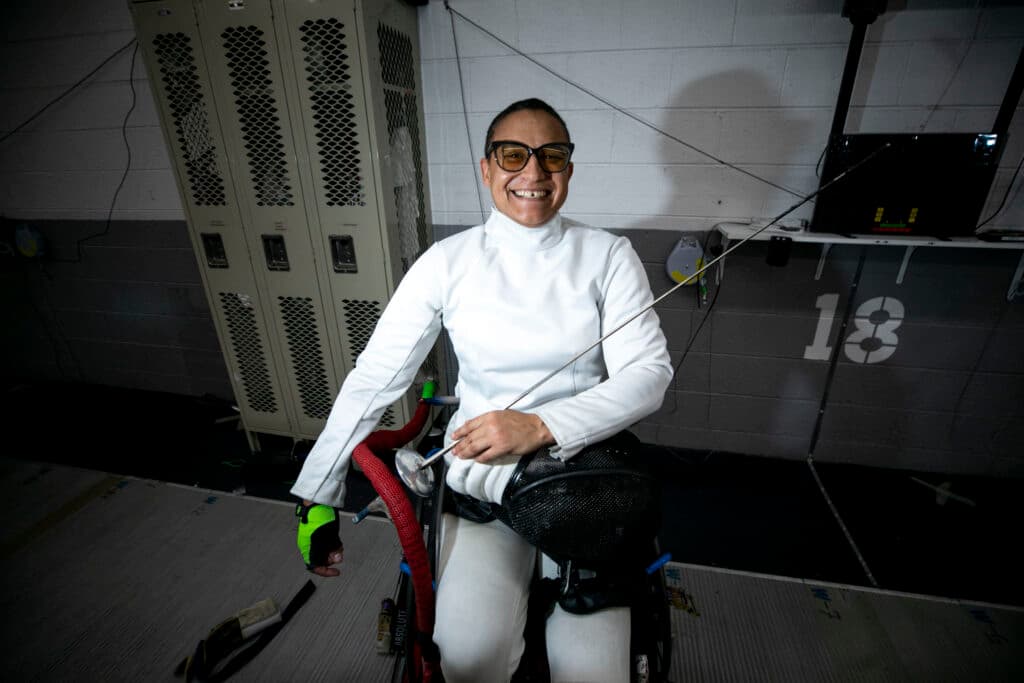
Taylor is competitive, so of course she'd like to bring home a medal. But just being there, on the top of her game, in the company of athletes she's come to regard as family, she said that's ultimately the best reward.
"It is about the experience. Because for fencing, every time you lose, you learn something. The only time you actually lose or fail is when you don't learn something. And that's what I've come to enjoy," she said. "I am beyond excited."

